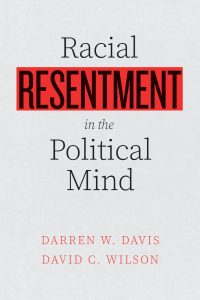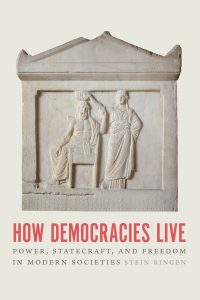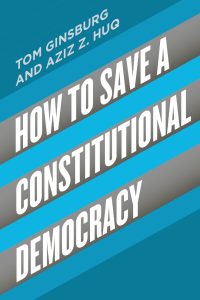January 6th, One Year Later
January 6, 2021, will forever be marked in history as the date of the Capital riot. Now that we’re a year out, what does this anniversary mean for American democracy? We asked three of our leading political science authors to offer their perspectives.
Darren W. Davis, coauthor of Racial Resentment in the Political Mind
Many people will say that January 6, 2021 was about election fraud, but it was not about election fraud. Many people were motivated to believe the 2020 presidential election was stolen to align with their existing and prior beliefs about how the status quo is being challenged and stolen (David Wilson and I refer to this as racial cognitive consistency in our book: Racial Resentment in the Political Mind). They believed, and continue to do so, they were being left behind, cut-in-line, and disadvantaged by undeserving African Americans and minorities who incidentally turned out to vote in large numbers in the 2020 presidential election. Allegations of voter fraud and the subsequent January 6 insurrection trivialize a serious and dangerous coded disaffection in American politics today. While I do not attribute racial prejudice and racial resentment to President Trump, he exploited and fomented racial resentment and racial prejudice, creating a deeper cover for many individuals, mostly Whites, to believe their status was being challenged by underserving African Americans and encouraged many Whites to turn against the very ethos and political institutions that bequeaths them higher status and privilege. From their perspective, since the system that is now being challenged by racial and ethnic minorities cannot be made “great again” (or returned to an era when Whites enjoyed greater advantage), might as well start by dismantling the current one (through insurrection and anarchy) and create different anti-democratic rules – voter suppression laws. The January 6 insurrection was another outburst and backlash to racial resentment and racial prejudice.
Stein Ringen, author of How Democracies Live: Power, Statecraft and Freedom in Modern Societies
A year ago, a coup d’état was attempted in America. Since then, we have seen that the American political establishment does not stand united in defense of democracy and democratic values. America is the world’s leading democracy. As democracy goes in America, so it goes in the world. It matters for all of us that American democracy repairs itself. It has done so at previous junctures. It has the capacity. Now is the time for leaders in Congress, from both sides, to get together and confirm their commitment to democracy as the best possible form of government. That’s not much to ask. It would matter enormously.
Aziz Z. Huq, coauthor of How to Save a Constitutional Democracy
The most remarkable effect of the January 6 Capitol riot is how little it changed. On one side, it failed to derail a peaceful transition of presidential power. But this is not surprising: As Tom Ginsburg and I have written, a violent seizure of power was never the most likely disruption of the democratic process in the first place. Thinking of the January 6 riot as a direct threat to democracy was probably misplaced in the first instance.
On the other hand, the events of January 6 have done nothing to alter the profoundly worrisome diffusion of the ‘big lie’ of an election stolen from Trump, or the corrosive brief in racist ideas of a “great replacement” and various QAnon conspiracies that lie behind this belief. Research by Robert Pape shows such beliefs to remain widely shared, along with a stubborn minority belief in the legitimacy of political violence. Just as seeing unvaccinated friends and family die from Covid apparent does not change perceptions of the epidemic, apparently seeing an actual violent assault on the democratic process by copartisans does not change one’s conviction that it is the them, on the other side, defecting from democracy. Indeed, perhaps January 6th’s most important effect has been to legitimate legalistic strategies of democratic derailment on the political right.
Given how deeply false beliefs have seeped into both the Republican base and party apparatus, it is hard to see how the structural conditions of democratic conditions still hold: Simply put, it is difficult to envisage a scenario in which those elements of the Republican party accepted even a well-documented electoral defeat or a world in which some don’t respond to that defeat by using the legal tools of state and national power to derail an election.
More information about all of these books is available on our website or from your favorite bookseller.


